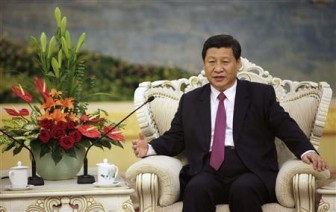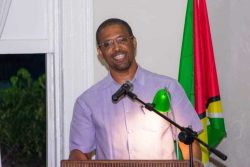BEIJING (Reuters) – Chinese authorities and media remained silent on the whereabouts of Vice President Xi Jinping today, sparking rumours and raising questions over why Beijing is not being more forthcoming on the health of its president-in-waiting.
China maintains silence on Xi, rumour mill on overdrive

Xi has skipped meetings with visiting leaders and senior officials over the past week, including US Secretary of State Hillary Clinton, because of what sources told Reuters was a possible back injury suffered while swimming.
Xi has not been seen in public since September 1 but Chinese officials have refused to give any explanation for his absence from the public stage, giving rise to bizarre speculation on the country’s Internet rumour mill.
Xi failed to appear on state television’s evening broadcast today, which featured almost every other member of the nine-man Politburo Standing Committee, China’s top political body.
Among various theories being floated, the 59-year-old Xi has had a stroke or heart attack or was the target of an assassination attempt.
Foreign Ministry spokesman Hong Lei, asked today for the third consecutive day about Xi’s health, again declined to respond. “I don’t have any information about this to announce,” he said.
The ministry, for the most part the only government department that regularly takes question from foreign reporters, has repeatedly refused to comment on Xi’s status and whereabouts.
“Something serious must have happened, because they would have put him on national TV right away had there been no serious physical problem,” said Minxin Pei, professor of government at Claremont McKenna College in California.
“I rule out political foul play, that he is in some kind of serious political trouble. It’s simply unimaginable. He gave a speech on September 1, and that’s after Beidaihe – if he were in political trouble, he wouldn’t have given that speech.”
Beidaihe is the seaside summer retreat of senior Communist Party leaders, who meet there every August to hammer out policies for the coming year. This year the talks were likely to have focused on the new party leadership to be unveiled at the party congress expected to be held in October.
With the congress held only once every five years and its top leaders being replaced only every decade, it is China’s most important political event. The fact that its timing has not yet been announced has fuelled speculation about discord within the party.
One of the more bizarre rumours – first floated then retracted by overseas Chinese website Boxun — was that Xi and He Guoqiang, another standing committee member, were targets of separate assassination attempts by staged car crashes.
He Guoqiang made his first public appearance since late August on the evening news on Wednesday, visiting a newspaper publisher in apparent good health.
‘HIS OWN CHOICE’
But other observers and newspapers said there was no cause for worry.
Xi is “healthy and in control,” the well-regarded Hong Kong-based on-line magazine iSunAffairs reported, citing “direct and indirect contacts including Xi Jinping’s relatives”.
Xi “is busy preparing for the 18th Party Congress and planning how to push forward reform of the political system,” the weekly magazine said. “As to why he has not appeared or met foreign guests for the last few days, it is probably his own personal choice.”
Foreign businessmen attending the World Economic Forum meeting in the Chinese port city of Tianjin were not fazed. Victor Chu, chairman of First Eastern Investment Group, said he was not worried, for now.
“If there is no clarity over another few weeks, I think there will be some concern. But from what I understand it is not a serious concern,” he told Reuters.
“Hopefully with this experience, the Chinese government officials will understand that Chinais now a key player in the world and obviously what happens in China arouses much more attention from the rest of the world.”
As China has grown into the world’s second-largest economy, corporate spokesmen and even some government officials have become more open and PR-savvy.
But such people “encounter strong resistance from the more conservative elements who still think that the general health of the top leaders is a state secret”, said Joseph Cheng, professor of political science at City University of Hong Kong.
“They think that this kind of information may affect the leadership succession process or the party congress. They lack a sense of accountability to the domestic population and the international community. Of course, they are concerned that talking about these issues may anger top leaders who don’t want their health being discussed.”








